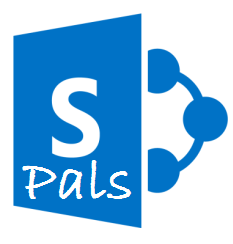As of now, I am more and more involved into automation of regular SharePoint activities into PowerShell scripts. Not all things are that easy to find out in MSDN and technet. I would be sharing scripts to the community through this series that would make the life easier to keep track of the scripts that would be essential for SharePoint development and administration activities
Script to fetch all the site collection details in SharePoint online
Import-Module Microsoft.Online.SharePoint.PowerShell -DisableNameChecking -ErrorAction SilentlyContinue
Connect-SPOService -Url "https://XXXX-admin.sharepoint.com" -Credential userid@example.com
Get-SPOSite –Detailed | Export-CSV –LiteralPath “Path/filename.csv” –NoTypeInformation
Script to get all the site and sub site which are having unique permission in sharepoint online
############################################################################################################################################
#Script that gets all the property Bags
# Required Parameters:
# -> $sUserName: User Name to connect to the SharePoint Online Site Collection.
# -> $sPassword: Password for the user.
# -> $sSiteUrl: SharePoint Online Site Url
############################################################################################################################################
$host.Runspace.ThreadOptions = "ReuseThread"
function Invoke-LoadMethod() {
param(
[Microsoft.SharePoint.Client.ClientObject]$Object = $(throw "Please provide a Client Object"),
[string]$PropertyName
)
$ctx = $Object.Context
$load = [Microsoft.SharePoint.Client.ClientContext].GetMethod("Load")
$type = $Object.GetType()
$clientLoad = $load.MakeGenericMethod($type)
$Parameter = [System.Linq.Expressions.Expression]::Parameter(($type), $type.Name)
$Expression = [System.Linq.Expressions.Expression]::Lambda(
[System.Linq.Expressions.Expression]::Convert(
[System.Linq.Expressions.Expression]::PropertyOrField($Parameter,$PropertyName),
[System.Object]
),
$($Parameter)
)
$ExpressionArray = [System.Array]::CreateInstance($Expression.GetType(), 1)
$ExpressionArray.SetValue($Expression, 0)
$clientLoad.Invoke($ctx,@($Object,$ExpressionArray))
}
function getSubWebs
{
param ($spoCtx, $path)
try
{
$oWebsite = $spoCtx.Web;
#$spoCtx.Load($oWebsite, $website => $website.Webs, $website => $website.Title);
$spoCtx.Load($oWebsite);
Write-Host "----------------------------B4------------------------------------------------" -foregroundcolor Green
$spoCtx.ExecuteQuery();
Write-Host "-----------------------------A4-----------------------------------------------" -foregroundcolor Green
foreach ($orWebsite in $oWebsite.Webs) {
$newpath = $mainpath + $orWebsite.ServerRelativeUrl
getSubWebs -spoCtx $spoCtx -path $newpath
Write-Host $newpath + " - " + $orWebsite.Title
}
}
catch [System.Exception]
{
write-host -f red $_.Exception.ToString()
}
}
#Definition of the function that allows to read property bags in SharePoint Online
function ReadSPO-PropertyBags
{
param ($sSiteUrl,$sUserName,$sPassword)
try
{
#Adding the Client OM Assemblies
#Add-Type –Path "C:Program FilesCommon Filesmicrosoft sharedWeb Server Extensions16ISAPIMicrosoft.SharePoint.Client.dll"
#Add-Type –Path "C:Program FilesCommon Filesmicrosoft sharedWeb Server Extensions16ISAPIMicrosoft.SharePoint.Client.Runtime.dll"
#SPO Client Object Model Context
$spoCtx = New-Object Microsoft.SharePoint.Client.ClientContext($sSiteUrl)
$spoCredentials = New-Object Microsoft.SharePoint.Client.SharePointOnlineCredentials($sUserName, $sPassword)
$spoCtx.Credentials = $spoCredentials
Write-Host "----------------------------------------------------------------------------" -foregroundcolor Green
Write-Host "Reading PropertyBags values for $sSiteUrl !!" -ForegroundColor Green
Write-Host "----------------------------------------------------------------------------" -foregroundcolor Green
$web = $spoCtx.Web
$spoCtx.Load($web.Webs)
$spoCtx.ExecuteQuery()
foreach($web1 in $web.Webs){
Write-Host "----------------------------------------------------------------------------" -foregroundcolor Green
Write-Host $web1.Title " - " $web1.Url " - " $web1.HasUniqueRoleAssignments -ForegroundColor Green
Write-Host "----------------------------------------------------------------------------" -foregroundcolor Green
$prop = $web1.AllProperties
$spoCtx.Load($prop)
$spoCtx.ExecuteQuery()
$keys=$prop.FieldValues.Keys
#$spoPropertyBagKeys
foreach($key in $keys){
Write-Host $key "-" $prop[$key] -ForegroundColor Green
}
Invoke-LoadMethod -Object $web1 -PropertyName "HasUniqueRoleAssignments"
$spoCtx.ExecuteQuery()
Write-Host "HasUniqueRoleAssignments-" $web1.HasUniqueRoleAssignments -ForegroundColor Green
}
#getSubWebs -spoCtx $spoCtx -path $sSiteUrl
$spoCtx.Dispose()
}
catch [System.Exception]
{
write-host -f red $_.Exception.ToString()
}
}
#required parameters
$ssiteurl = "https://XXXX.sharepoint.com/sites/Dev018"
$susername = "XXXX@example.com"
$spassword=convertto-securestring "MySecretPassword" -asplaintext -force
$mainpath = "https://XXXX.sharepoint.com/sites/Dev018"
ReadSPO-PropertyBags -sSiteUrl $sSiteUrl -sUserName $sUserName -sPassword $sPassword

Leave a comment